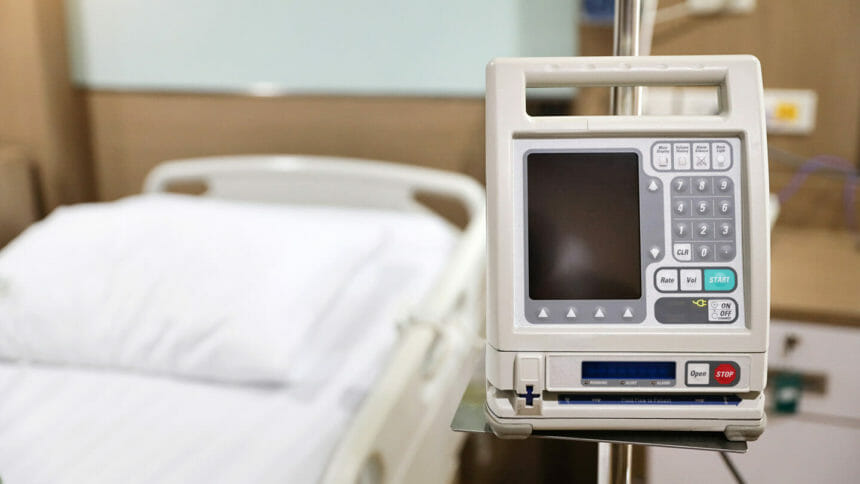
Get A Quote
Do bed bugs spread MRSA?
Bed bugs have long been associated with discomfort and nuisance, but recent studies have delved into a more unsettling question: can bed bugs spread MRSA? These findings have sparked debate and controversy within the field of vector-borne infectious diseases. While there's no conclusive evidence that bed bugs act as vectors for human pathogens in nature, researchers have uncovered intriguing insights that warrant exploration.
The Acquisition of MRSA by Bed Bugs
Emerging evidence indicates that bed bugs can acquire MRSA both externally on their cuticle surface and internally while feeding. This revelation raises concerns about their potential role in the transmission of MRSA to humans. Research experiments demonstrated that bed bugs can contract MRSA by coming into contact with contaminated surfaces or through feeding on contaminated membranes. However, it's important to note that while bed bugs can acquire MRSA, this doesn't necessarily imply that they can spread the infection to humans.
/cloudfront-us-east-1.images.arcpublishing.com/gray/6HREOPFNNNBXJOJBCA7EVWVDSQ.jpg)
The Controversial Role of Bed Bugs as Vectors
The debate surrounding the potential vector role of bed bugs in transmitting pathogens like MRSA has been ongoing for decades. Researchers acknowledge the lack of conclusive evidence that bed bugs can act as vectors for human pathogens in natural settings. While they have been implicated in the transmission of various pathogens, including MRSA, the extent of their contribution to disease transmission remains a subject of scrutiny.
Experimental Insights
A series of trials were conducted to assess the presence of viable MRSA on and inside bed bugs over a 7-day period. The experiments involved exposing bed bugs to MRSA by allowing them to feed through a contaminated membrane. The study found that bed bugs readily acquired MRSA on their cuticle surface after feeding, with higher MRSA levels detected immediately after exposure. Intriguingly, internal detection of MRSA within bed bugs increased on the third day after exposure, suggesting the proliferation of MRSA within their bodies following ingestion.

Transmission Potential
The study also explored the transmission potential of bed bugs. In two out of three trials, bed bugs were able to transmit MRSA to uncontaminated membrane feeders. While these results don't definitively establish bed bugs as vectors of MRSA, they do provide a basis for considering their possible contribution to MRSA transmission in certain scenarios. Additionally, field-collected bed bugs and clinical reports linking bed bugs to Staphylococcus infections lend some support to the hypothesis that bed bugs might play a role in MRSA transmission under specific circumstances.
Aichek's Role in Understanding MRSA Transmission
As we delve into the intriguing world of bed bug and MRSA interactions, it's essential to leverage advanced tools for diagnosis and research. Aichek, a leading rapid test kit manufacturer, is at the forefront of providing innovative solutions for detecting infectious agents. Our cutting-edge technology empowers researchers and professionals to unravel complex transmission dynamics, contributing to a deeper understanding of potential disease vectors like bed bugs.

FAQs About Bed Bugs and MRSA Transmission
1. Can bed bugs spread MRSA?
While studies have shown that bed bugs can acquire MRSA both externally on their cuticle surface and internally through feeding, the direct transmission of MRSA from bed bugs to humans is not definitively established. While bed bugs have the ability to acquire MRSA, it doesn't necessarily mean they can spread the infection to humans. Further research is needed to understand the full implications of this interaction.
2. Are bed bugs proven vectors of human pathogens?
The involvement of bed bugs in transmitting pathogens like MRSA has been a topic of debate and discussion. While there is no conclusive evidence that bed bugs act as vectors of human pathogens in nature, they have been implicated in the transmission of various pathogens. However, their role as significant disease vectors remains uncertain.
3. Can bed bugs transfer MRSA through feeding?
Research experiments have shown that bed bugs can contract MRSA through contact with contaminated surfaces or by feeding on membranes contaminated with the bacteria. This indicates the potential for bed bugs to acquire MRSA during feeding activities.
4. What role do bed bugs play in MRSA transmission?
While there's no conclusive proof that bed bugs can directly transmit MRSA to humans, studies suggest that bed bugs may contribute to the transmission of MRSA in specific settings. Field-collected bed bugs and clinical reports associating bed bugs with Staphylococcus infections provide some support for this hypothesis.
5. How does Aichek contribute to understanding MRSA transmission?
Aichek, a leading rapid test kit manufacturer, offers advanced diagnostic tools that empower researchers and professionals to explore infectious disease dynamics. By leveraging Aichek's innovative technology, experts can gain deeper insights into interactions between potential vectors like bed bugs and pathogens like MRSA. This collaboration aids in unraveling complex transmission patterns and advancing our understanding of disease spread.
Conclusion
The relationship between bed bugs and MRSA is an area of ongoing investigation that poses questions about their role as vectors. While research has illuminated intriguing insights, the definitive role of bed bugs in transmitting MRSA remains uncertain. As we continue to explore these dynamics, collaboration with innovative manufacturers like Aichek enables you to advance understanding of infectious disease transmission and its potential vectors.
